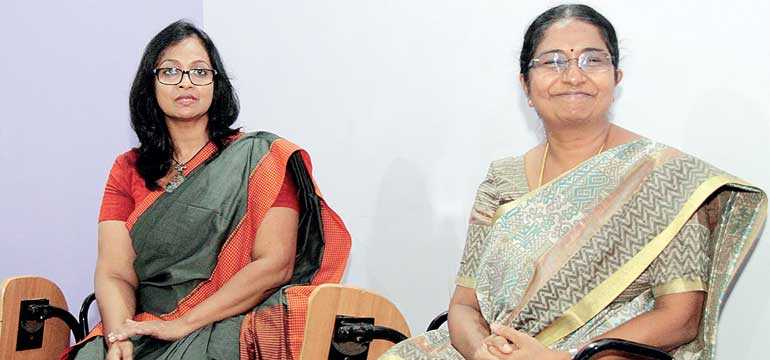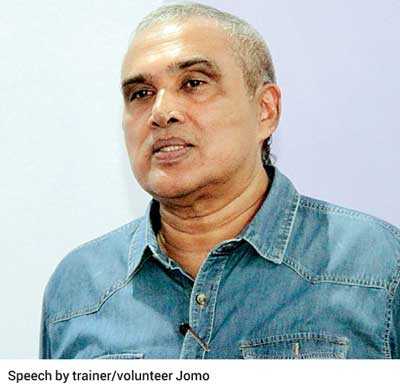Saturday Feb 21, 2026
Saturday Feb 21, 2026
Monday, 9 September 2019 00:00 - - {{hitsCtrl.values.hits}}

Sri Lanka can be held up as an example of working towards suicide prevention. In 1995, it was reported the country has the highest rates in the world. However, due to timely interventions by stakeholders such as Sumithrayo, the country has made major advances in reducing its suicide rate from the peak in the mid-1990s of 45 per 100,000 people, to an incidence of 16 per 100,000 in 2018.
While the number of people dying by suicide has dramatically reduced in Sri Lanka, there are still large numbers of people making suicide attempts, indicating there is a level of distress being experienced by the population, while there are also many who are profoundly impacted by suicidal behaviour. These issues urgently need to be addressed.
Every life lost represents someone’s partner, child, parent, friend, or colleague. For us to understand the gravity of the problem, it is important that a mechanism is quickly put in place to collect information and statistics on attempted suicides. 
Attempting suicide is never the result of a single factor or event, and is likely to have several interrelated and complex causes. The single factor or event (such as a scolding) is the trigger that causes unbearable pain, coupled with the inability to cope any further and feelings of very low self-esteem – resulting in an attempt to end it all.
Some of the problems that increase the risk of suicide are: rejection in a relationship, unbearable grief, heavy use/dependency on alcohol or other drugs, a disabling or terminal illness, history of earlier attempts or self-harming, depression, mental illness, poor coping skills, the biology of the brain, genetics, psychological traits, and social forces, which can all contribute to such feelings.
Another less publicised reason is that dealing with human sexuality (associated with the facts of life) in an unsupportive family, community, or hostile school environment can also bring about such feelings. As would the feelings of worthlessness and guilt soon after (or long after) a person has been sexually abused.
The founder of ‘The Samaritans’ Chad Varah was haunted by the following experience: standing in at the funeral of a 14-year-old girl, he asked the undertaker why the girl was being buried in unconsecrated ground, and was told she had killed herself because she had mistaken menstruation for some sort of sexually transmitted disease.
Since 1996, when the special Presidential Task Force set up the National Policy on Suicide Prevention, it recognised that mental illness, alcohol and drug use, poor coping skills, are all contributory factors that lead people towards suicide in Sri Lanka.
Services are therefore targeted towards helping people who fall into these categories. The fact that suicide is invariably the outcome of a combination of factors – environmental, psychological, sociological and biological is now accepted.
Sumithrayo has been in the forefront of suicide prevention: befriending and empowering the lonely, depressed, despairing, and suicidal with emotional support. It is a free and confidential service.
Sumithrayo also seeks to alleviate human misery, loneliness, despair, and depression by listening to and befriending those who feel that they have no one else to turn to who would understand and accept them.
The service is delivered by a group of volunteers. Volunteers are carefully selected and trained to befriend people who are emotionally distressed. Training gives them the skill of befriending. Volunteers are not Counsellors but Befrienders. Prospective volunteers do not need any special qualifications or experience to become a Sumithraya – just a willingness to listen in a caring, compassionate, non-judgmental way.
“Too often we underestimate the power of a touch, a smile, a kind word, a listening ear, an honest compliment, or the smallest act of caring, all of which have the potential to turn life around,” said Sumithrayo Chairperson Kumudini de Silva.
Befriending is the art of positive listening to troubled feelings and helping distressed persons to explore healthy options, which can ultimately lead to empowerment and a positive approach to life’s issues. People of all ages seek befriending from Sumithrayo for concerns that include marital, family, domestic violence, sexual abuse and harassment, relationship issues, mental health, grief, loneliness, and low self-esteem.
Set up by The Samaritans, Sumithrayo practices unique non-judgmental befriending, the key of which is active listening.
The Caller unburdens and thereby vents while the volunteer listens and accepts the Caller unconditionally. The Caller is encouraged to explore and identify the feelings that have caused despair and distress. When a rapport is thus established, and the Caller is more rational (with a better balance of head and heart), options are explored and discussed.
The Caller is finally empowered to consider one or more of these options, and seek relief from their present feelings. The goal of befriending is to empower the Caller to make life-enhancing choices. A Caller does not lose the freedom to make his own decisions, including the decision to take his own life, and is free to break contact at any time.
Sumithrayo is where they will find empathy instead of sympathy, empowerment instead of advice, and a non-judgmental friend who will listen with the assurance of complete confidentiality. People who have been through such a crisis will confirm that it was a huge relief to unburden their feelings and discover options other than taking their lives.
The Colombo centre, with the strength of almost 100 volunteers, receives over 8000 callers per year who seek befriending via face to face, telephone, by letter and email.
If you would like to show your support for suicide prevention please join the Sumithrayo on 10 September at the Mahaweli Centre from 3.00 pm - 6.00 pm. Light a candle with them to remember a lost loved one and for the survivors of suicide. Sumithrayo will commemorate ‘World Suicide Prevention Day 2019’ here with a series of activities that includes an interesting panel discussion.
The Centre is open from 9am to 8pm daily, throughout the year. Anyone who needs support can call 2692909, 2683555, 2696666 or visit 60B Horton Place Colombo 7 or even email: [email protected]